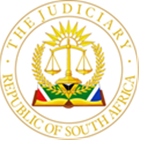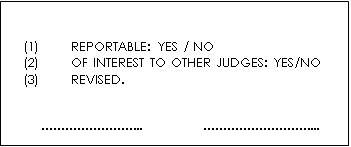Editorial note: Certain information has been redacted from this judgment in compliance with the law.
IN THE HIGH COURT OF SOUTH AFRICA
GAUTENG DIVISION, PRETORIA

CASE NO.: A283/2020

In the matter between:
A V D M | Appellant |
And | |
ROAD ACCIDENT FUND | Respondent |
JUDGMENT
van der Westhuizen, J
[1] This is an appeal, with leave of the court a quo, against the whole judgment and order of Ranchod, J. delivered on 16 March 2018.
[2] The appellant instituted an action for the recovery of damages suffered as a result of injuries sustained in a motor vehicle accident that occurred on or about 27 October 2012. The appellant was a passenger in a vehicle that overturned.
[3] The respondent conceded the issue of liability for any damages that the appellant may prove or agree upon. At the trial in the court a quo the only issue that was to be adjudicated upon was the issue of quantum. In that regard the issue of future medical expenses was conceded by the respondent who tendered an undertaking in terms of section 17(4)(a) of the Road Accident Fund Act, 56 of 1996. The remaining rubrics were that of past medical expenses, general damages and past and future loss of earnings.
[4] At the time of the accident, the appellant was 19 years old and a permanent resident in New Zealand. When the trial was heard, the appellant was 24 years old. It was agreed that the court a quo would receive the appellant’s viva voce evidence via Skype.
[5] After hearing the evidence presented on behalf of the appellant and hearing argument, the court delivered a written judgment. In the judgment the court a quo granted an order of absolution from the instance with costs against the appellant.
[6] The court a quo recorded in its judgment that the appellant apparently declined to travel so South Africa to testify at the trial relating to the quantum portion of her claim. The reason advanced was that she was medically unfit to travel to South Africa. That was confirmed by the appellant when she testified. She further testified that she suffered discomfort whilst testifying and that her hip was the cause of her discomfort. The appellant further testified that due to her injuries, she was unemployable and further that the injuries were such that she was unable to study to obtain some qualification. She confirmed that she had considered the medico-legal reports filed by experts on her behalf. She further confirmed the letter by a Dr Warren Leigh to a Dr Craig Panther, both from New Zealand relating to her current condition. Apparently that letter confirmed that the appellant had a hip replacement and that the operation was successful. The appellant’s confirmation of the reports filed on her behalf, included the fact of the fall and the subsequent injuries sustained. I shall deal with this issue anon.
[7] There was no cross-examination of the appellant. On behalf of the respondent no evidence was led at the trial. Argument was presented on behalf of both parties.
[8] The expert reports filed on behalf of the appellant were all prepared in respect of assessments of the appellant undertaken between 3 November 2015 and March 2017.
[9] It was recorded in the report of the Industrial Psychologist that the appellant had apparently suffered a fall down stairs on or about 8 October 2015, i.e. approximately three weeks prior to being assessed by her appointed medico-legal experts. The appellant only informed the Industrial Psychologist of the incident of the fall who recorded that fact. The appellant had disclosed that fact only to the Industrial Psychologist, and to none of the other experts, in particular to the Orthopaedic surgeon.
[10] The court a quo recorded that during the assessment of the appellant, all the experts, and in particular the Orthopaedic surgeon, recorded that the injuries and their sequelae included the injuries sustained as a result of the fall as to have been due to the accident in 2012.
[11] In this regard, counsel on behalf of the appellant was non-plussed. He argued at the trial, and repeated the submissions on appeal, that the defendant could have cross-examined the plaintiff in respect of the issue of the fall. It was further argued on the appellant’s behalf that the fall did not constitute a novus actus interveniens. Furthermore, it was submitted on behalf of the appellant that the defendant had not pled, nor led any evidence to prove the novus actus interveniens. The court a quo in any event rejected those submissions. The court correctly held that the fact of the fall should have been made known to all the experts to enable them to exclude the effect of those injuries from their opinions evidenced in their reports. There is no merit in the aforementioned submissions for what follows.
[12] The fact of the fall was within the peculiar knowledge of the appellant, yet she did not convey that fact to at least the Orthopaedic surgeon. There could have been no consideration of the injuries sustained due to the fall and any sequelae thereof, in relation to the initial injuries and the sequelae thereof. A plaintiff, such as the appellant, bears the onus of proving a causal connection between an injury sustained in an accident and the loss as a result thereof. The court correctly held that the issue of causation include two distinct inquiries – a factual one and a legal one.
[13] The factual inquiry involves applying the but for principle. Although it may result in a finding that the wrongful act was a sine qua non for the loss, it may not constitute a legal causation, namely whether the wrongful act was sufficiently closely or directly related to the loss.1
[14] The factual matrix of the appellant’s case included the fact of the fall and the subsequent injuries suffered therefrom, some three years after the accident, on the appellant disclosing it to the Industrial Psychologist. It is one of the facts to be considered by the court adjudicating upon the issue of quantum. The court a quo correctly held that no onus rested upon the respondent in respect of the injuries sustained as a result of the fall.
[15] The appellant by confirming the content of the reports, and in particular that of the Orthopaedic surgeon, admitted to all the orthopaedic injuries recorded in all the expert reports. By admitting the export reports filed upon the appellant’s behalf, the respondent contracted no onus to prove a novus actus interveniens as a substantial defence. As recorded earlier, it fell within the factual matrix that the court a quo had to consider.
[16] Furthermore, there was no merit in the appellant’s submission that the fall and the resultant injuries were due to the injuries suffered in the accident. The court a quo correctly held that an onus rested upon the appellant to prove such fact. No evidence was presented on the appellant’s behalf in that regard. Consequently, there was no merit in that submission.
[17] The court a quo correctly held that there was no merit in the submission that because of the failure on the part of the respondent to subject the appellant to cross-examination, it did so at its peril. The fall and subsequent injuries were proven facts. They required no cross-examination. The court held that in so far as the fall and subsequent injuries constituted an actus novus interveniens, the appellant had proven it.
[18] In my view, the court a quo correctly came to the conclusion that it was not in a position to adjudicate upon the appellant’s quantum in respect of the injuries sustained in the accident during 2012.
[19] It follows in my view that the appeal stands to be dismissed.
I propose the following order.
The appeal is dismissed with costs.
________________________________
C J VAN DER WESTHUIZEN
JUDGE OF THE HIGH COURT
I agree
________________________________
P PHAHLANE
JUDGE OF THE HIGH COURT
I agree
________________________________
I DE VOS
ACTING JUDGE OF THE HIGH COURT
On behalf of Applicant: G Lubbe
H R duToit
Instructed by: C J van Rensburg Attorneys
On behalf of Respondent: S Guldenpfennig SC
M Mokale
Instructed by: Marivate Attorneys Inc.
Date of Hearing: 25 January 2023
Judgment delivered on: March 2023
1 International Shipping Co (Pty) Ltd v Bentley 1990(1) SA 680 (A); Minister of Police v Skosana 1977(1) SA 31 (A)
